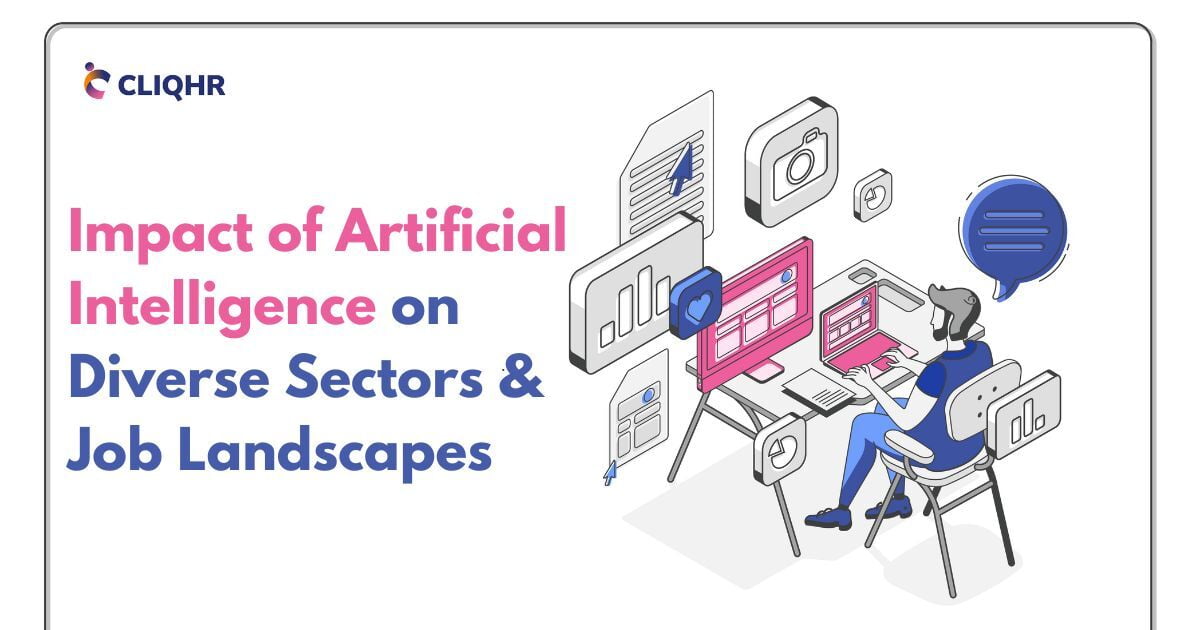
Artificial Intelligence (AI) is not just a technological advancement; it's a transformative force reshaping the landscape of various industries and job sectors. From automating tasks to unlocking new possibilities, the impact of AI is profound and far-reaching. In this blog post, we'll explore how AI is making waves across diverse industries and delve into the evolving job scenarios as a result of this technological revolution.
Healthcare:
AI is revolutionizing healthcare by improving diagnostic accuracy, personalized treatment plans, and drug discovery. Medical professionals are collaborating with AI algorithms to analyze vast datasets, leading to more efficient and precise patient care. New roles such as AI-assisted diagnostics specialists and healthcare data analysts are emerging, requiring a fusion of medical knowledge and technical expertise.
Finance and Banking:
In the financial sector, AI is streamlining processes, enhancing fraud detection, and optimizing risk management. Automated trading algorithms, robo-advisors, and AI-driven customer service are becoming commonplace. This shift demands a workforce with expertise in finance and data science, giving rise to roles like financial analysts specializing in AI-driven analytics.
Manufacturing and Logistics:
AI-powered automation is transforming manufacturing processes, making them more efficient and cost-effective. Smart factories utilize AI for predictive maintenance, quality control, and supply chain optimization. Jobs in this sector are evolving towards robotics engineering, AI system maintenance, and logistics optimization specialists.
Retail and E-Commerce:
Personalized shopping experiences, demand forecasting, and inventory management are areas benefiting from AI in the retail industry. AI-driven chatbots and recommendation systems enhance customer interactions. The job landscape is adapting with the emergence of roles like AI retail strategists, e-commerce data analysts, and user experience designers focused on AI applications.
Education:
AI is playing a crucial role in education through personalized learning experiences, intelligent tutoring systems, and educational analytics. The demand for professionals skilled in both education and AI technologies is growing, leading to the creation of roles such as AI education specialists, learning experience designers, and AI curriculum developers.
Agriculture:
Precision agriculture, crop monitoring, and automated farming equipment are powered by AI, enabling more sustainable and efficient farming practices. As a result, the agriculture sector is witnessing a shift towards roles such as agricultural data scientists, precision agriculture technicians, and AI-powered farm management specialists.
Cybersecurity:
The evolving threat landscape requires advanced cybersecurity measures, and AI is playing a pivotal role in identifying and mitigating cyber threats. AI-driven security analysts, ethical hackers, and cybersecurity AI specialists are becoming integral to safeguarding digital assets in a technology-driven world.
Also read: The Evolving Role of Technology in Recruitment (2024)
The impact of AI on various industries is a testament to its versatility and potential to drive positive change. As technology continues to advance, the demand for a workforce equipped with a combination of domain-specific expertise and AI proficiency is evident. Adapting to this new reality is essential for individuals and organizations alike, as we collectively navigate the evolving landscape of industries transformed by the power of Artificial Intelligence.
